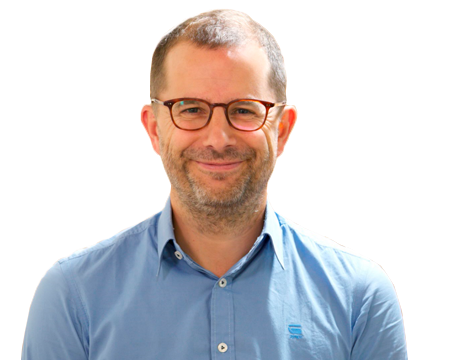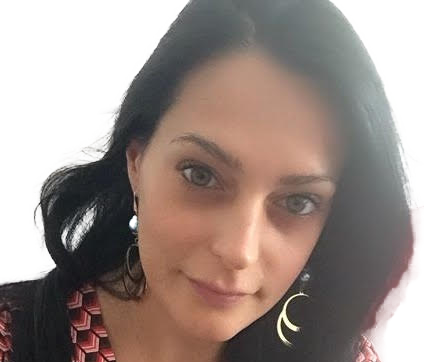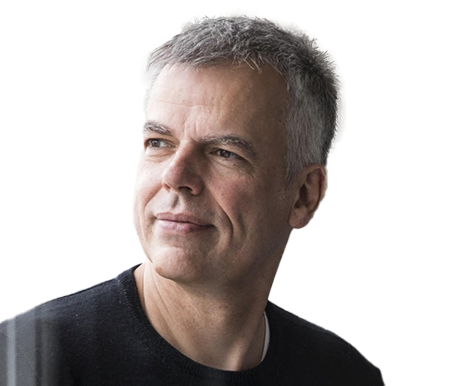KEYNOTES

BENEDIKT AMANN
Childhood trauma and its impact on mental and somatic health in adulthood
Benedikt Amann is a psychiatrist, EMDR psychotherapist and senior researcher, who worked in Germany, in the UK and currently in Spain. Apart from pharmacological studies in bipolar disorder and neuroimaging in schizoaffective disorder, he started back in 2008 with research in EMDR and prevalence studies of psychological trauma in psychiatric disorders.
He is currently Associate Professor at the Pompeu Fabra University and consultant and senior researcher in the Mental Health Institute Hospital del Mar in Barcelona. Furthermore, he is the head of a Psychiatric Unit and Research Unit in Centro Fòrum of the same department with a scientific focus on randomized controlled trails of EMDR in traumatized patients with severe mental disorders.
The EMDR Europe Association presented him with the Francine Shapiro Award in 2015 and he received a NARSAD Independent Investigator Award 2016 due to his clinical and scientific focus of EMDR in the treatment of traumatized patients with severe mental disorders. He also received the first research price by EMDR Spain in 2022, which is named after him. From 2017 to 2021 he was the chair of the scientific committee of EMDR Europe. He is also PI in European funded projects, which aim to improve mental health at the workplace and the community.
He is author of around 150 Pubmed indexed publications and presents at national and international conferences about trauma as a risk factor for psychiatric disorders and the use of EMDR in psychiatric disorders.

SARAH DOMINGUEZ
EMDR Therapy: Navigating the Transdiagnostic Terrain
Sarah Dominguez PhD is a clinical psychologist and the director of The Wattle Centre, a psychology centre based in Sydney, Australia. At the Wattle Centre, Sarah sees clients in private practice and delivers training for mental health practitioners in evidence-based trauma-focused interventions. She has authored numerous peer-reviewed publications and book chapters and has been an invited presenter at many national and international conferences.
Sarah is an accredited consultant and trainer by the EMDR Association of Australia (EMDRAA). Sarah serves on the EMDRAA board and is a member of the EMDRAA Scientific Committee. She delivers EMDR therapy basic training to therapists across Australia and offers several on-demand courses, such as EMDR Refresher and Using EMDR and Schema Therapy, on her website.

ALESSANDRA MINELLI
Epigenetic and biological signatures of early life traumatic events: A putative effect of EMDR
Alessandra Minelli, Associate professor in Psychobiology at the Department of Molecular and Translational Medicine at the University of Brescia. I also have the position of senior researcher at the Genetic Unit IRCCS (Scientific Research Institute) Fatebenefratelli “San Giovanni di Dio”, Brescia, Italy. The principal aim of my research is the identification of clinical and biological predictors associated with the development of major depressive disorders (MDD) and to the efficacy of relative treatments, both pharmacological and non-pharmacological. For this reason, my publications cover a broad range of topics, such as the genetics of personality traits as mediators of MDD; the clinical and genetic markers related to unfavourable treatment outcomes focusing also on treatment resistant depression (TRD); the clinical role of childhood trauma and relative psychotherapy treatment in TRD; the biological dysregulations associated to childhood trauma; the clinical and biological markers associated to electroconvulsive therapy in TRD patients.
I have a degree in clinical psychology, a PhD in neuroscience and a specialization degree in cognitive and behavioural psychotherapy, and I am an expert psychologist in trauma-focused psychotherapy (EMDR and TF-CBT). I spent one year abroad at the F.C. Donders Centre for Cognitive Neuroimaging in Nijmegen (The Netherlands) and then I held positions as post-doc and researcher for several years.
I successfully administered many projects (e.g., staffing, research protections, budget), in collaboration with other researchers, and produced peer-reviewed publications as a result of these projects. In particular, I am the PI of the unit UNIBS in the HORIZON-HLTH-2021-STAYHLTH-01 for the project entitled “Psych-STRATA - A Stratified Treatment Algorithm in Psychiatry: A program on stratified pharmacogenomics in severe mental illness”. I’m an official collaborator as well as the Chair of the clinical sub-committee in the ERAPerMed project 2020, entitled “PROMPT - Toward PrecisiOn Medicine for the Prediction of Treatment response in major depressive disorder through stratification of combined clinical and -omics signatures”. I’m collaborator and project manager of the project RF-2016-02361697, entitled “Towards precision medicine in psychiatry: clinical validation of a combinatorial pharmacogenomic approach”. Moreover, I was PI of the research project entitled "Transcriptional and miRNA signatures associated with the efficacy of the Eye Movement Desensitization and Reprocessing (EMDR) therapy in Treatment Resistant Depression (TRD) in-patients".
Regarding scientific honors I can mention that a) since 21 June 2022 I am a member of the cost action CA19106 - Multi-Sectoral Responses to Child Abuse and Neglect in Europe: Incidence and Trends (Euro-CAN)- Working Group 1 Definition and operationalisation of child maltreatment; Working Group 4 Dissemination and multiplication; b) since the beginning of 2021 I am the Co-Chair of the ECNP (European College of Neuropsychopharmacology) "Pharmacogenomics and Transcriptomics" Network – Chair Prof. Bernhard T. Baune; c) since 2019 I am a member of the PhD course in "Molecular Genetics, Biotechnology and Experimental Medicine" Committee – University of Brescia; d) since 2019 I am qualified for Full Professorship in General psychology, psychobiology and psychometrics from Italian Ministry of Education, Universities and Research (National scientific habilitation (ASN)).

FRANK PADBERG
A Transdiagnostic Cluster Approach to Child Maltreatment: A New Model for Assessment and Therapy
Frank Padberg, M.D. is Professor of Psychiatry and Psychotherapy at the Ludwig-Maximilians-University (LMU) Munich, and director of the Section of Psychosomatic Medicine and Psychotherapy at the Dept. of Psychiatry and Psychotherapy, LMU Hospital Munich. His research focuses on the development of non-pharmacological therapies for people living with complex affective disorders, i.e. depression with chronic courses and significant psychiatric co-morbidities (e.g. borderline personality disorder and posttraumatic stress disorder). His team is currently following three research lines: 1) understanding the complexity of affective disorders by characterizing clinical (e.g. trauma, resilience, attachment, loneliness) and neurobiological features, 2) investigating mechanisms-based psychotherapy (e.g. CBASP, Cognitive Behavioral Analysis System of Psychotherapy), and 3) developing non-invasive brain stimulation (NIBS) methods (e.g. rTMS and tDCS) to provide safe and effective therapeutic interventions in mental health care. Prof. Padberg has widely contributed to the respective research fields with more than 300 scientific publications (e.g. in The Lancet, Lancet Psychiatry, JAMA Psychiatry, Psychotherapy and Psychosomatics).
